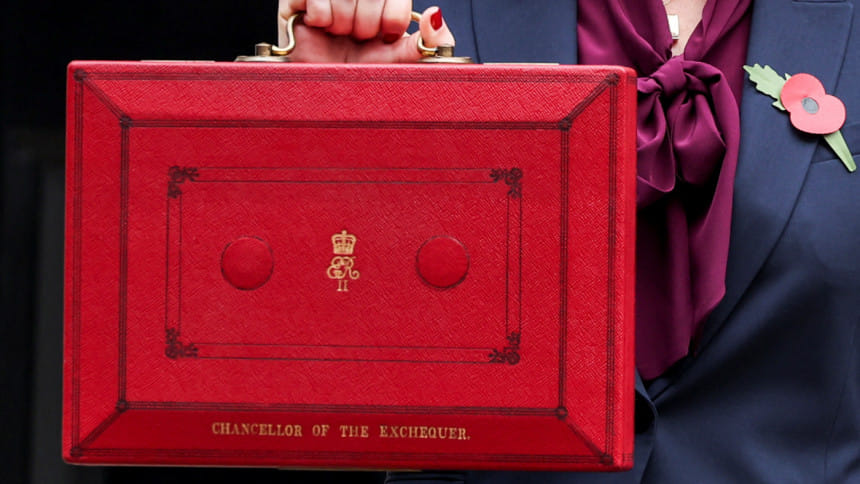Key changes introduced in the 2024 UK budget

The 2024 UK budget was presented in the British Parliament on October 30 by Rachael Reeves, Britain's first female chancellor of exchequer. It is also the Labour Party's first budget since coming to power after 14 years. Therefore, the political context in which the budget was presented is quite historic. The chancellor stressed that since the UK voted for a change, the Labour government has a mandate for a national renewal. She pledged higher disposal income and improved standard of living, promising to restore economic stability. The budget is aimed at enabling growth through investment. The challenge for this budget is to convince the populace that a higher standard of living is dependent on better quality of public services, and investment for economic growth is vital.
The October 30 budget was presented against the backdrop of certain predictions. For the next three years, the UK economy is predicted to grow by one to two percent, and during this period the inflation rate is projected to oscillate between 2.3 and 2.6 percent. The budget's success critically depends on whether the country's economic growth rate picks up and the inflation rate remains low. For this, the budget substantiates that the government shall not borrow for day-to-day spending to balance the current budget within three years of forecast. It aims to substantiate economic disciplines, plug black holes in public finances, and encapsulate progressive tax structures.
The chancellor has alleged that she inherited a black hole of 22 billion pounds through unfunded pledges by the previous government. In that line, the latest budget proposes tax increases by 40 billion pounds, pushing tax revenue to a record 38 percent of the GDP. More than half of the tax increase, amounting to 25 billion pounds, would come from raising the employers' national insurance contributions by 1.2-15 percent. The problem may be that the increased employers' contributions to national insurance may be viewed as taxation on jobs, and as something that could hinder economic growth, even with new allowances for smaller businesses. The government will permanently introduce lower tax rates for retail, hospitality and leisure businesses from 2026-27. Until then, these entities will receive 40 percent relief on business rates up to a cap of 10,000 pounds. The national minimum wage will be increased by 6.7 percent to 12.21 pounds per hour, equivalent to 1,400 pounds per annum for an eligible full-time worker. This is a vote-winner strategy, but its impacts on job creation needs to be considered.
Capital gains tax will be increased as well. The minimum rate of this tax is going to be raised from 10 to 18 percent, and the maximum rate from 20 to 24 percent. With this increase, the revenue is expected to be raised by a relatively modest 2.5 billion pounds. The government plans to extend a freeze on the threshold for inheritance tax till 2030, allowing up to 325,000 pounds to be free of inheritance tax. But even in this area, closing the loopholes and other adjustments aims to raise two billion pounds per annum. Crossing the one-million-pound threshold relief reforms for business and agriculture assets is expected to attract an inheritance tax of 20 percent. The farming lobby has already criticised this measure, suggesting that it would adversely affect food production and endanger food security in Britain. Personal tax thresholds on income tax and national insurance will increase in line with inflation only from 2028-2029. This avoids dragging people into higher tax burdens. The current 20 percent tax break on private school fees will be scraped and a VAT will be imposed on private school fees from January 2025. Will that see a rush of private school students to state school? The jury is still out there on this issue.
The chancellor maintained that increasing fuel duty next year would be wrong and thus the current freeze on fuel duty will be extended for a year. Raising the fuel duty would be politically dangerous and it portrays as a tax rise for the working-class people. Tobacco and vape taxes will be raised by two percent and the tax on hand-rolled tobacco by 10 percent. Levy on sugary soft drinks will also go up, as well as the tax on alcohol; in a way, sin taxes will be raised.
The 2024 budget has made substantial allocations to different social sectors like education, health and housing. Under the new budget, the Department of Education will receive nearly seven billion pounds of capital investments—a nearly 20 percent real-term increase. That includes 1.4 billion pounds to rebuild approximately 500 needful schools. The school budget will increase by 2.3 billion pounds for hiring teachers, two billion pounds for school maintenance, one billion pounds for special educational needs, and 300 million pounds for higher education. Two observations are pertinent: firstly, the measures represent a move to deliver new and renovated schools, and secondly, a 20 percent real-term increase in investments is an instant lesson on what can be done with changed fiscal rules.
A 10-year plan for the National Health Services (NHS) is envisaged in the current budget. It targets a two percent productivity growth next year. There will be a 23 billion pounds increase in the operational health budget and a 3.1 billion pounds increase in the capital budget, including one billion pounds for repairs and upgrades, 1.5 billion pounds for new hospital beds and testing capacity. Will the 23 billion pounds increase in everyday spending be enough? No, it will not be enough without structural changes. But with these measures, there will be 40,000 more appointments each week to cut the NHS waiting list, which stood at over eight million in August 2024. The chancellor has announced a 1.5-billion-pound capital funding for new surgical hubs and scanners to deliver an extra two million NHS appointments a year in England.
The budget emphasised more public investment for the UK economy. The level of public investment will be boosted by more than 100 billion pounds over the next five years, including 70 billion pounds via the National Wealth Fund to invest in industries of the future. The government plans to spend 20.4 billion pounds for research and development. The local governments will get an additional funding of 1.3 billion pounds, including 600 million pounds for social care. The government will spend five billion pounds on housing investment, including increasing the supply of affordable housing. Meanwhile, 3.4 billion pound will be used for the warm homes plan to upgrade buildings, lowering energy bills to aid public services improvement. The compensation of nearly 12 billion pounds to the victims of the infected blood scandal and another two billion pounds for victims of the Post Office IT scandal testify to the commitment of the administration to public accountability.
In conclusion, the 2024 UK budget has three major distinguishing characteristics. First, it did not shy away from tough choices of increasing taxes, plugging in black holes, and adopting sin taxes. Second, it is a pro-people budget, as it raises taxes on the wealthy, while looking after the interests of common people, e.g. by not raising the income tax or freezing the fuel tax. Third, the current budget increases social sector allocations to education, health, housing, etc. But on the other hand, the budget seemingly does not address the issue of trade-offs or appreciate the fact that choices are not always black and white. In the ultimate analysis, the budget represents an important document at a moment of fundamental choice of the UK.
Selim Jahan is the former director of UNDP's Human Development Report Office at UNDP in New York.
Views expressed in this article are the author's own.
Follow The Daily Star Opinion on Facebook for the latest opinions, commentaries and analyses by experts and professionals. To contribute your article or letter to The Daily Star Opinion, see our guidelines for submission.

 For all latest news, follow The Daily Star's Google News channel.
For all latest news, follow The Daily Star's Google News channel. 










Comments